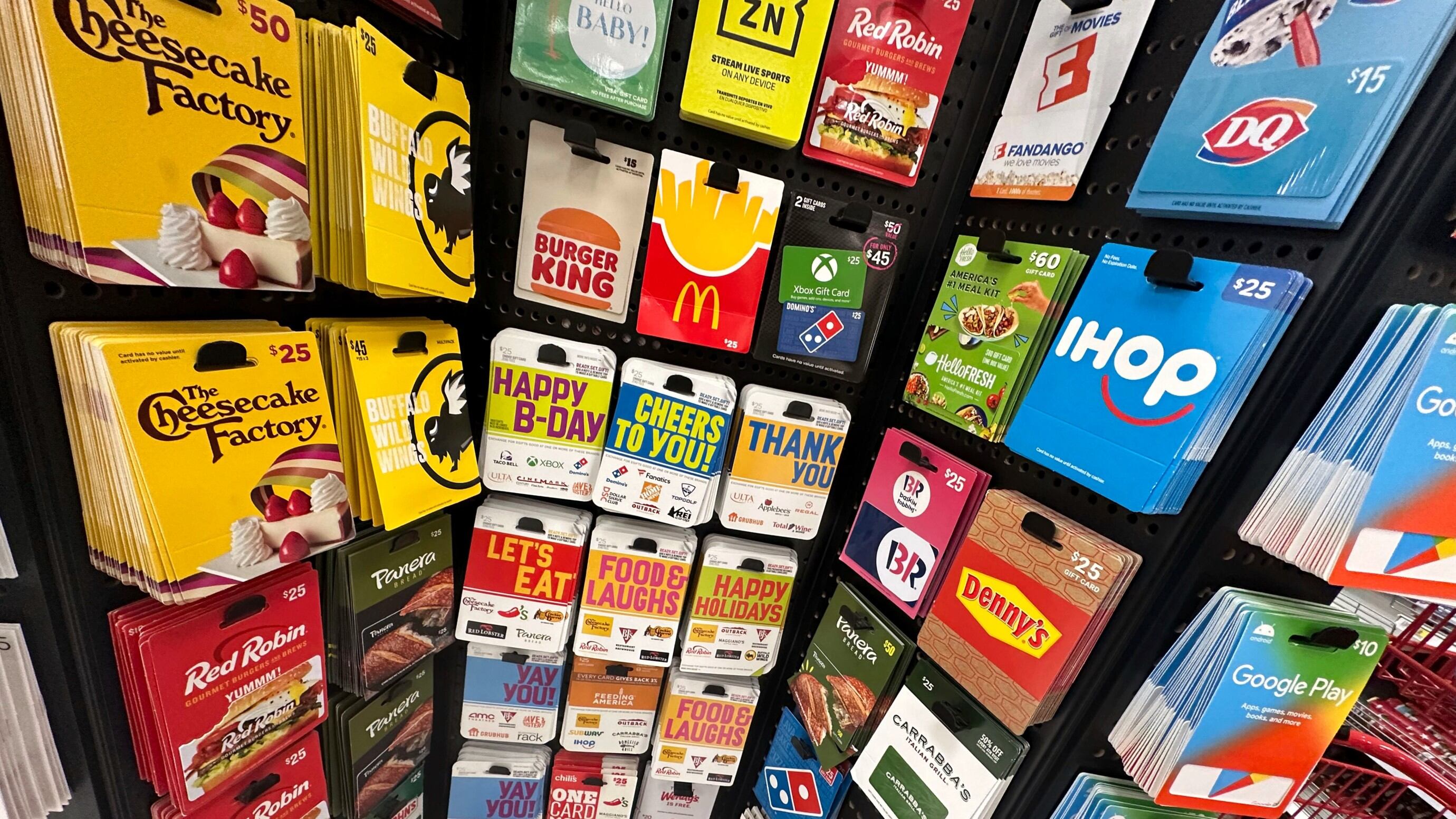By Dee-Ann Durbin
Gift cards make great stocking stuffers — just as long as you don't stuff them in a drawer and forget about them after the holidays.
Americans are expected to spend nearly $30 billion on gift cards this holiday season, according to the National Retail Federation. Restaurant gift cards are the most popular, making up one-third of those sales.
Most of those gift cards will be redeemed. Paytronix, which tracks restaurant gift card sales, says around 70% of gift cards are used within six months.
But many cards — tens of billions of dollars’ worth — wind up forgotten or otherwise unused. That’s when the life of a gift card gets more complicated, with expiration dates or inactivity fees that can vary by state.
Here’s what to know about the gift cards you’re giving — or getting:
LOVED, BUT LOST
After clothing, gift cards will be the most popular present this holiday season. Nearly half of Americans plan to give them, according to the National Retail Federation.
But many will remain unspent.
Gift cards get lost or forgotten, or recipients hang on to them for a special occasion. In a July survey, the consumer finance company Bankrate found that 47% of U.S. adults had at least one unspent gift card or voucher. The average value of unused gift cards is $187 per person, a total of $23 billion.
THE GIFT OF TIME
Under a federal law that went into effect in 2010, a gift card can’t expire for five years from the time it was purchased or from the last time someone added money to it. Some state laws require an even longer period. In New York, for instance, any gift card purchased after Dec. 10, 2022, can’t expire for nine years.
Differing state laws are one reason many stores have stopped using expiration dates altogether, says Ted Rossman, a senior industry analyst at Bankrate.
USE IT OR LOSE IT
While it may take gift cards years to expire, experts say it’s still wise to spend them quickly. Some cards — especially generic cash cards from Visa or MasterCard — will start accruing inactivity fees if they're not used for a year, which eats away at their value. Inflation also makes cards less valuable over time. And if a retail store closes or goes bankrupt, a gift card could be worthless.
Perhaps consider clearing out your stash on National Use Your Gift Card Day, a five-year-old holiday created by a public relations executive and now backed by multiple retailers. The next one is Jan. 20, 2024.
OR SELL IT
If you have a gift card you don’t want, one option is to sell it on a site like CardCash or Raise. Rossman says resale sites won’t give you face value for your cards, but they will typically give 70 to 80 cents per dollar.
THE MONEY TRAIL
What happens to the money when a gift card goes unused? It depends on the state where the retailer is incorporated.
When you buy a gift card, a retailer can use that money right away. But it also becomes a liability; the retailer has to plan for the possibility that the gift card will be redeemed.
Every year, big companies calculate “breakage,” which is the amount of gift card liability they believe won’t be redeemed based on historical averages. For some companies, like Seattle-based Starbucks, breakage is a huge profit-driver. Starbucks reported $212 million in revenue from breakage in 2022.
But in at least 19 states — including Delaware, where many big companies are incorporated — retailers must work with state unclaimed property programs to return money from unspent gift cards to consumers. Money that isn’t recovered by individual consumers is spent on public service initiatives; in the states' view, it shouldn't go to companies because they haven't provided a service to earn it.
CLAIM IT
All 50 states and the District of Columbia have unclaimed property programs. Combined, they return around $3 billion to consumers annually, says Misha Werschkul, the executive director of the Washington State Budget and Policy Center.
Werschkul says it can be tricky to find the holders of unspent gift cards, but the growing number of digital cards that name the recipient helps. State unclaimed property offices jointly run the website MissingMoney.com, where consumers can search by name for any unclaimed property they’re owed, including cash from gift cards.













